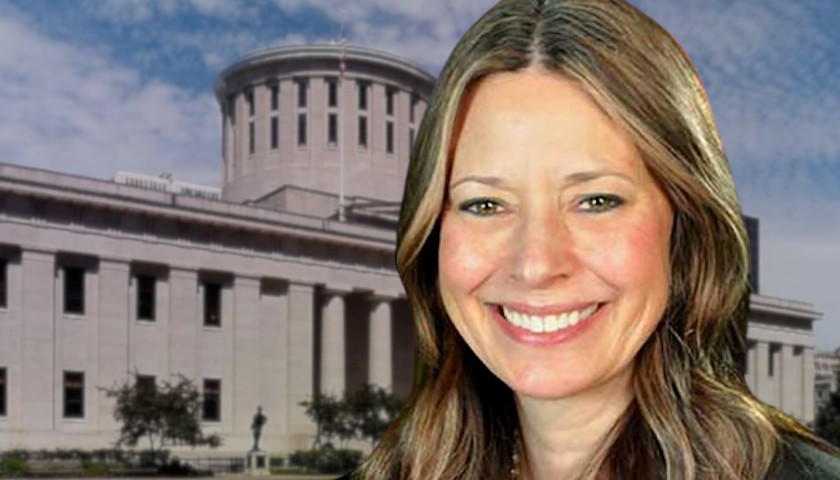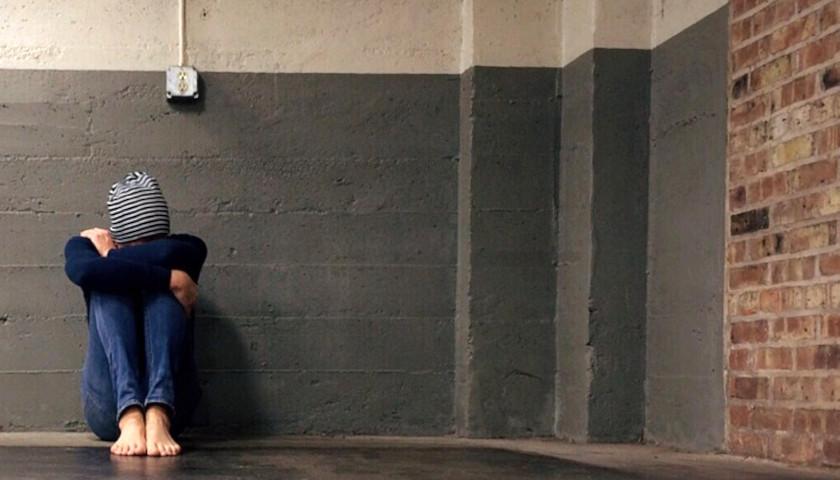COLUMBUS, Ohio – State Representative Derek Merrin (R-Monclova) introduced a bill Wednesday that would both expunge the records of businesses cited for COVID violations and return fines and penalties paid.
Upon its introduction, House Bill 127 was assigned to the House State and Local Government Committee on Thursday.
HB127 does not contain an emergency provision, which means if it is passed in both the House and Senate and were approved by Ohio Governor Mike DeWine – or if it passes both chambers and is vetoed by DeWine but then overridden with supermajority votes in the General Assembly – the bill would go into effect 90 days later.
The meat of the measure is twofold:
- expunges the records of all businesses whose files reflect violations of codes, orders or rules enacted by state agencies or local boards of health related to the State of Ohio COVID response;
- returns to businesses penalties and fines paid for violations.
The expungements and refunds reach back to March 14, 2020 and will extend forward.
“Our businesses have suffered enough. Punitive fines accomplish nothing at this time. Orders are ambiguous and constantly changing – it’s unfair to hold businesses to these orders,” Merrin said during a phone interview with The Ohio Star.
When asked what compelled him to draft the proposed statute, he said:
A business owner cannot help if a customer lowers a mask below the nose or stands 71 inches rather than 72 inches from someone. How can a business owner control that? It’s completely unreasonable.
These violations are not criminal court citations, so these individuals never had the opportunity to appear before a judge. We are talking about an agency that wants to act like a quasi-judicial arm. Violations are on flimsy legal ground.
At least two Ohio courts agree.
Maurice Thompson of the 1851 Center for Constitutional Law shared his testimony on another piece of legislation (House Bill 90) with The Star. In it, Thomson says “the administrative overreach” that penalized noncompliance with orders related to the Ohio Department of Health’s pandemic powers was deemed “impermissibly unconstitutional and otherwise unlawful.”
The 1851 Center argued on behalf of complainants in Rock House Fitness, Inc. v. Acton and Kalahari Resorts & Conventions v. [Amy] Acton. Acton is the former Director of the Ohio Department of Health.
HB127 applies to businesses, not individuals and most of the business violations stem from the Ohio Liquor Control Commission, according to Merrin.
“I’m very optimistic this will get signed into law. There will come a day when everyone, including the governor, wants to make this right. Financially, this is a drop in the bucket for the state to reimburse the funds,” he said. He continued “businesses are forced to pay a fine or shut down for two weeks; some of the fines can be very substantial. The fines and punishments are progressive [more expensive and stiffer each additional offense].”
Merrin believes over 300 businesses have been cited over the past 11 months.
Following testimonies in the State and Local Government Committee the bill would then either die there or receive committee approval. If approved, HB127 would then be reported and calendared for debate on the House floor – all before a vote to either pass or reject the proposed law.
Interested parties wishing to deliver either a written or in-person testimony may contact members of the committee.
- Scott Wiggam, Chair (R-Wooster)
- Marilyn John, Vice Chair (R-Shelby)
- Brigid Kelly, Ranking Member (D-Cincinnati)
- Jamie Callender (R-Concord Twp.)
- Rodney Creech (R-West Alexandria)
- Bill Dean (R-Xenia)
- Sarah Fowler Arthur (R-Geneva)
- Tavia Galonski (D-Akron)
- Timothy E. Ginter (R-Salem)
- Diane V. Grendell (R-Chesterland)
- Allison Russo (D-Upper Arlington)
- Michael J. Skindell (D-Lakewood)
- Lisa A. Sobecki (D-Toledo)
- Brian Stewart (R-Ashville)
- Shane Wilkin (R-Lynchburg)
– – –
Jack Windsor is State House Reporter at The Ohio Star. Windsor is also an independent investigative reporter. Follow Jack on Twitter. Email tips to [email protected].





